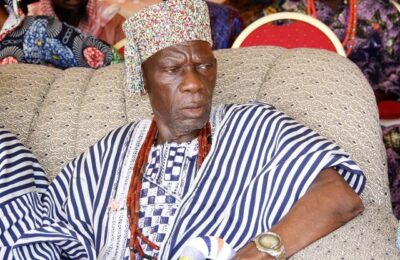China is no longer just manufacturing machines; it is manufacturing the future. In research parks and robotic foundries stretching from Hangzhou to Shenzhen, engineers are teaching algorithms to mimic human gait — designing exoskeletal limbs that convert data into dexterity, steel into sensation. The world watches as a civilization once dismissed as an imitator becomes an innovator of motion itself. Yet, across the continent of Africa, Nigeria — a nation equally endowed with human capital — remains caught in the quagmire of crude dependency, where industrial aspiration ends at the refinery gate and the future is perpetually outsourced.
Innovation has become China’s civic religion. The lightweight robotic leg, a fusion of biomechanical engineering, artificial intelligence, and precision sensors, symbolizes an epoch where intelligence is embodied in circuitry. China’s scientists are not waiting for miracles; they are manufacturing them. These wearable assistive technologies are restoring the dignity of stroke survivors, redefining endurance tourism, and reimagining human mobility. Each robotic stride is a manifesto — a declaration that civilization must evolve beyond rhetoric into tangible revolution.
Nigeria, by contrast, remains an economy embalmed in the relics of extraction. The nation’s lifeblood still flows from the wells of crude oil — unrefined, unprocessed, and unsustainable. It exports rawness and imports refinement, a metaphor that transcends petroleum. Even in an age where nations are designing intelligent systems, Nigeria’s leadership appears content to recycle political illusions while the world reconfigures reality through innovation. The paradox is painful: a country of extraordinary intellect shackled by its own refusal to invent.
The divergence between Beijing and Abuja is not a matter of geography but of governance. China’s ascent was engineered through deliberate statecraft — disciplined education, structured industrial policy, and unwavering national focus. Nigeria’s decline, conversely, is self-inflicted, born of political lethargy and institutional rot. The obsession with consumption over creation has reduced Africa’s largest economy to a marketplace of mediocrity. It is easier to debate the price of fuel than to fund the science that could eliminate its necessity.
The consequences of this technological inertia are existential. In the twenty-first century, nations that invent define civilization; those that merely consume are relegated to servitude. Every robotic limb produced in China signifies a step toward autonomy — a conquest of human limitation through disciplined imagination. Every barrel of crude exported from Nigeria signifies a retreat into dependency — a concession of national intelligence to foreign manufacturers. Innovation is the new sovereignty, and Nigeria is trading it away for comfort and complacency.
Still, amid the smog of disillusionment, the embers of brilliance remain. Nigeria’s young innovators — from fintech pioneers like Paystack and Flutterwave to agritech and healthtech startups — represent the silent rebellion of a generation tired of crawling in a world that runs on code. Yet their potential is throttled by the absence of infrastructure, policy vision, and institutional courage. Without a national framework that rewards research, funds invention, and protects intellectual labor, Nigeria’s ingenuity will remain a whisper drowned by political noise.
If China is teaching robots to ascend mountains, Nigeria must first teach itself to stand upright. The nation needs a new exoskeleton — not of metal, but of will. A structure built from discipline, creativity, and patriotic ambition. Until Nigeria learns to refine not just its oil but its mind, it will continue to walk barefoot through history while others sprint toward destiny. The choice is stark and simple: evolve or evaporate.
– Inah Boniface Ocholi writes from Ayah – Igalamela/Odolu LGA, Kogi state.
08152094428 (SMS Only)




